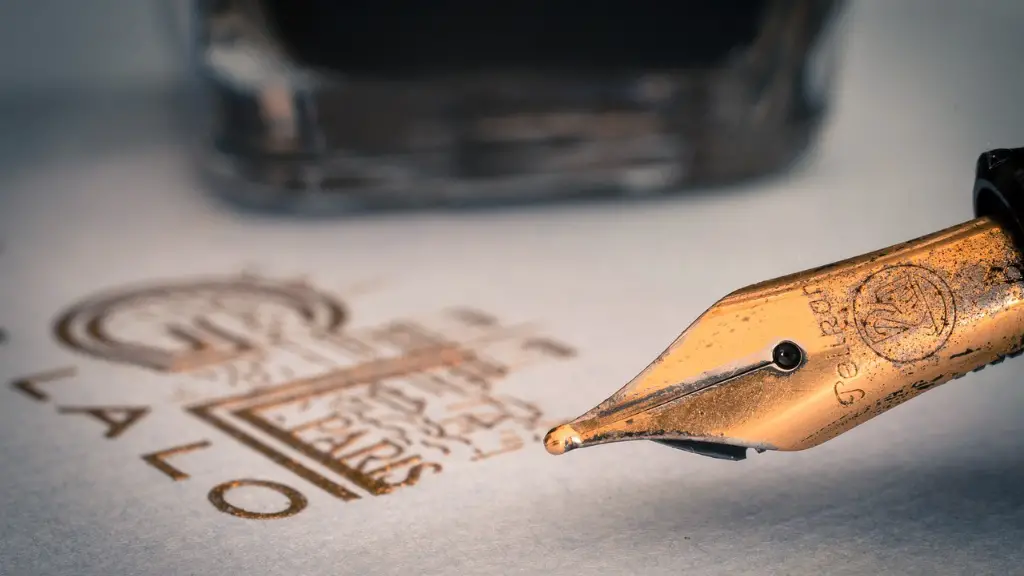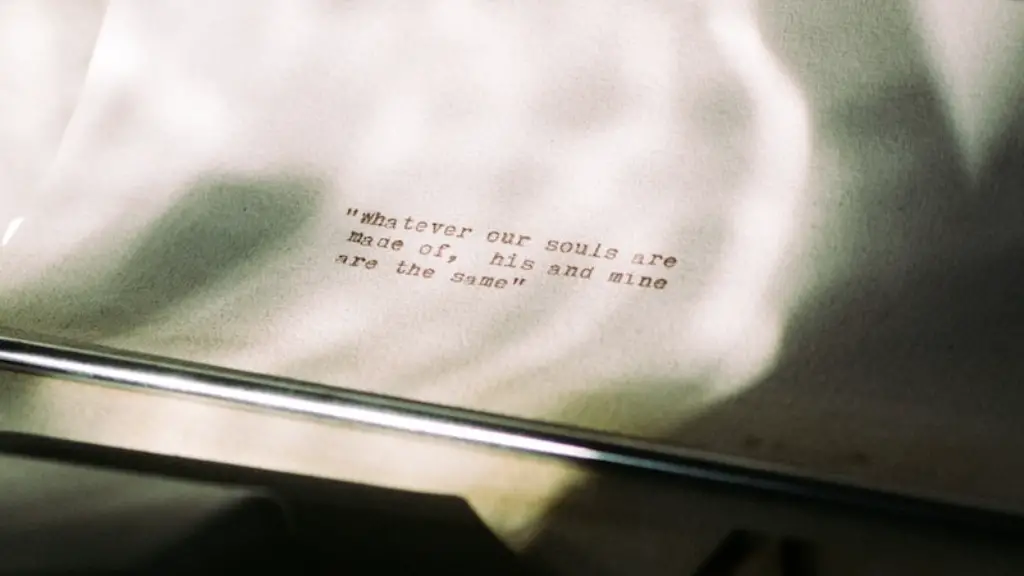Cover letters are important and much more than just a formality. When writing a cover letter for poetry, you need to strike the perfect balance between your creativity and professionalism. A clear and concise letter will ensure that you’re taken seriously and help your work stand out.
Before you start, read and study the poetry journal or press which you’re submitting your work to. You should aim to show them you’re thoroughly familiar with their publication and that you’re a serious candidate. Be sure to include a sample of your work, and always share how your particular work relates to their publication.
Begin your cover letter by introducing yourself as a poet and highlighting any experiences and published material you’ve had. This should be brief and to the point, as you don’t want to bore the journal editor. You can also describe your end goal, which should further provide an insight into you and your objectives.
When discussing your work, don’t focus too much on yourself or sound egotistical instead, focus on the content of your work. Every poem you submit should have a brief explanation as to why it should be included in the journal. Explain why you think it’s a suitable fit for their publication and help the editors to visualise the poem which you’re offering.
End your cover letter by ‘selling’ yourself and your work. Reflect upon what makes your work unique, why their publication should consider it and how you’d bring something different to the table. Provide clear and concise contact information so they can reply to your submission, as well as asking to hear back from them.
As with any cover letter, grammar is key. It’s important to take your time and think carefully about the language you’re using. Be mindful of how to make your writing sound natural, and don’t be afraid to use poetic language. However, it is advised to keep it professional and not go overboard with this.
Using the correct tone is also essential. You need to project yourself as serious, while still demonstrating your creative flair. Aim to come across as confident, thus deciphering your seriousness without offending anyone. Before submitting an application, ensure that you proof-read it to identify and amend any mistakes.
Analyse Your Poetry
One of the most important parts of writing a cover letter for poetry is to analyse your work. Re-read every poem and consider how it adds value to the journal, as well as its quality. Comparing each piece to your previously published work can help you to gauge how competitive they are.
Be honest with yourself. On the one hand, if you think the quality isn’t up to scratch, don’t submit it yet. On the other hand, if you think your work is below average for the journal, consider revising it and creating something more special. You’ll never make a good impression if you submit average work.
Make sure you provide structure to your reviews and back up any feedback with an explanation. Ultimately, you need to have a strong enough case to convince the journal editor to include your work.
Proofread and Finalise
Prior to submitting your work, it is essential that you proofread your cover letter and the poetry you’ve chosen. Ask yourself the following questions: are the poems that you’re submitting up to the standard of the journal, and does your cover letter succinctly explain each piece and why it should be included?
Remember that cover letters and poems should be revised, so don’t be disheartened if you receive feedback and are asked to amend your work until it’s right. If a publisher or journal requests a revision of your work, respect this and take it on board. If you believe their comments are unfair or invalid, explain your argument in a polite manner to initiate conversation.
When you’re happy and confident in the work you’re submitting, attach the poetry to your cover letter and submit it. But don’t forget to back up your work and store it in case the journal or magazine needs it in the future.
Stay Organised
With the sheer number of poetry journals, it can be overwhelming trying to track each submission – and you don’t want to miss out on an opportunity because your cover letter went astray. It is advised to deck out a filing system which works best for you.
It’s important to remember any individual publications’ guidelines, which often include accepted file formats and the size of documents. And when you’re ready to send a submission, or if you’re contacted for further details by the journal, always ensure that you send the full and correct pieces.
Be Ready to Receive Feedback
When you’re ready to submit your cover letter and poems, be prepared to receive feedback. Whilst some magazines and journals will reply to each submission, many don’t – so don’t take it to heart if you don’t hear back. It’s part of the process, and you should use it to help improve your work and crack on with the next piece.
That said, it is important to read any replies you do get, but try not to be deterred by criticism. Use feedback to hone and perfect your work, as well to gain and improve your skills.
Celebrate Your Successes
Whilst submitting to poetry journals is often a slow and sometimes challenging process, it is important to celebrate your successes as well as learning from mistakes. If your work is accepted for publication, enjoy this and appreciate what you have achieved. Use any online press or reviews to promote your work accordingly.
It’s also worth following the editors of poetry journals or magazines on social media, when possible. Alternatively, you could even engage in conversations with them. This will demonstrate your passion and enthusiasm, and also provide useful connections.
Focus on Your Goals
When writing a cover letter for poetry, it is essential that you stay focused and think long-term. Don’t lose sight of your goals, such as wanting to publish a book one day or receiving more national recognition. It’s important to remember that the publication process takes time and to keep at it until you get the result you want.
Likewise, focus on the bigger picture. Publications keep records of your submissions and often will offer other projects – such as collaborations – if you’ve been accepted before or if you’ve stayed on their radar. As long as you keep writing, and submitting carefully crafted work, you should eventually reach your desired outcome.
Utilising Technology
Whilst writing cover letters can be a very personable experience, there are several tools which can help you when applying to poetry journals. For example, consider using an online submission tracker so you can keep better records; or you could even use web design software to create an effective website which showcases your successes and material.
In addition, utilise the productivity apps and services which are available, as well as signing up for notifications when possible. Keeping organisation of applications and submissions is important so you can keep track of your progress and make sure nothing slips through the cracks.
Seeking Advice
Finally, don’t be afraid to ask for help if you feel like you need it. Find a mentor or someone to talk to who has experience with submitting poetry and can offer guidance. Alternatively, there are several online forums which can help you to understand the publication process, as well as workshops and courses which may be offered by your local area.





